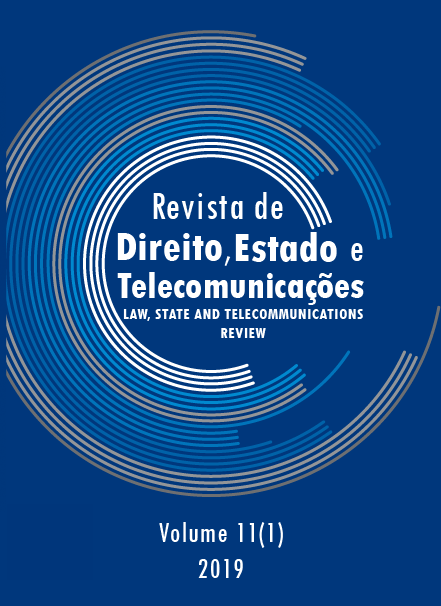The Public Choice View at the “Deregulation” Movement: Analyzing the Experience of European Telecommunications
DOI:
https://doi.org/10.26512/lstr.v11i1.24846Palavras-chave:
Liberalization. Deregulation. Public choice. Market concentration. Telecommunications.Resumo
Purpose ”“ The liberalization of European telecommunications has been expressed in highly concentrated markets with several major players at the pan-European level. Instead of fostering competitive marketplaces, the reform has created an oligopolistic landscape with powerful private corporations. This induces reasonable questions about the real objectives and the chosen ways of the reform.
Methodology/approach/design ”“ The deregulatory movement in the telecommunications sector is analyzed through contrasting perspectives of the public interest approach and public choice theory.
Findings ”“ The chance to change the landscape of the industry has been missed, and the current trend towards the global oligopolistic marketplace yields an unprecedented amount of economic power to narrow groups at the global scale. The liberalization movement introduced market mechanisms in the industry, but the real free and open market has never been formed, and it is possible to assert that it has never been among the real objectives and intentions of the policymakers.
Originality/value ”“ The recent surge of “liberalization” in the telecommunications industry speaks rather in favor of the hypothesis of vested private interests in the policy and that they have always been greatly covered by the sauce of public interest justifications. The case of telecommunications shows that ideas and understanding of economic phenomena played an important role in adoption of regulatory regimes, and it is apparent that people on the top of the social pyramid have opportunities to pick up and foster those ideas that better fit their private needs.
Downloads
Downloads
Publicado
Como Citar
Edição
Secção
Licença
By submitting this paper to the Law, State and Telecommunications Review,
I hereby declare that I agree to the terms of the Creative Commons Attribution 4.0 International (CC BY 4.0).


